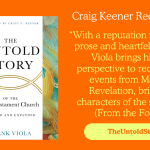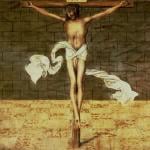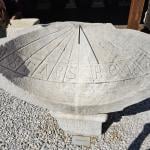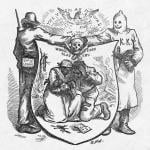For centuries, Lutheran Protestant Christianity in Northern Europe and the US taught our ancestors that there was nothing they could do to make God think better of them. Neither good deeds nor giving money to the church was seen as having importance in the eyes of God.
“For Protestants, life can be good just as it is. Life does not have to be lived in any particular ’religious’ way in order to have a good relationship with God,” says [Matias] Dalsgaard.
Protestants are free from obligations to God. They don’t have to live according to strict rules. Instead they have been charged with a rather nebulous task.
“Protestants are commanded to live an ordinary life together with other people. It is a tough task because Protestants are not told specifically how to do this,” says Dalsgaard.
‘Protestant’ countries have a culture of freedom
Throughout history, Protestant Christians have tried to manage their freedom in the best possible way. Over time, this has permeated the culture in countries that subscribe to the Protestant tradition, even though Christianity has gradually slipped into the background.
In Denmark, Sweden, the UK and Germany, this freedom meant that around 500 years ago, citizens started to become what is termed ‘modern’. It occurred after the Reformation in Northern Europe in the first half of the 16th century.
In this context, ‘modern’ has nothing to do with fashion, but means that people feel more free to make their own decisions without causing others to react negatively to those decisions.
“One could go as far as to say that the Protestant tradition squeezes out religion, because it rejects the idea that something holy exists here on Earth,” says the researcher.
Kierkegaard furnishes a good example
The author has analysed a large number of the most significant Christian texts. But the most important writer referred to in his book is the Danish philosopher Søren Kierkegaard.
“Kierkegaard is perhaps the sharpest existential analyst in the Lutheran Protestant tradition. He is the one who best presents the existential challenges, conflicts and opportunities. That is why I use him as a starting point,” he says.
You shall not know yourself
Kierkegaard describes the situation in which modern people find themselves today. In his book ‘Either/Or’, Kierkegaard introduces a person whom he calls ’the aesthete’. This is a man who cannot find a way to ‘choose himself’.
Kierkegaard criticises the aesthete for not choosing himself. Instead, he avoids himself by constantly acting out multiple roles.
But although you should ’choose yourself’, there is no prescription for what to choose, because you cannot find a core that is yourself.
“The Delphic Oracle – which existed in Ancient Greece – said ‘know thyself’. But Kierkegaard says ‘choose yourself’ – it is action-oriented. You should actively be the one you are, where you are – and not think so much about who you are. This is a task given to us by God,” says Dalsgaard.
via Protestantism has left us utterly confused | ScienceNordic.
This scholar, of course, misses the distinction between orthodox Lutheranism and the liberal, culturally-conforming state church. Kierkegaard’s emphasis on “choosing” would not seem to go well with Luther’s “bondage of the will.” And, of course, there is nothing about Christ, much less the Law (which destroys all complacency–I thought guilt and gloominess were part of the Scandinavian legacy!) and the Gospel. Or the Cross. The notion that one can have the influence of Christianity without Christianity– “even though Christianity has gradually slipped into the background”–is ludicrous on the face of it.
And yet, aren’t there some valid observations here? Lutherans, even orthodox ones, do seem to have less “religiosity.” And there is quite a bit of the doctrine of vocation here: “live an ordinary life with other people”; “you should actively be the one you are, where you are–and not think so much about who you are.”
. We’ll be taking the book section by section today and for the next fourMondays. The show runs from 3:00-5:00 p.m. Central Time, but it will also be archived. Go here to listen live (though our part will be taped).














